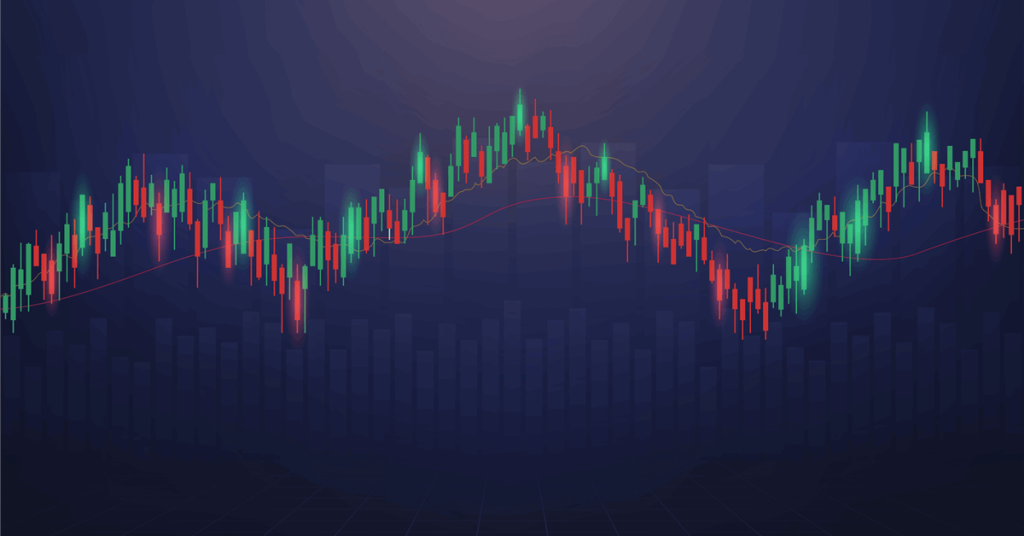Oil swung between gains and losses on the back of the biggest weekly increase since June as attention turned to the wider outlook for supply as the US and China made progress on trade.
West Texas Intermediate slipped 0.3% to settle just above $61, extending its decline for a second day. Top Chinese and US negotiators said they came to terms on a range of points, setting the table for President Donald Trump and counterpart Xi Jinping to finalize a deal to ease trade tensions between the world’s two biggest economies and crude importers.
Still, oil was little changed Monday after adding nearly 7% last week when the US sanctioned Russian oil giants Rosneft and Lukoil to squeeze Russia over its ongoing war in Ukraine. The move added output risks to a market that’s showing signs of entering a surplus. Lukoil announced in a statement that it intends to sell its international assets due to the latest sanctions.
“The market is taking a breather here,” said Dennis Kissler, senior vice president for trading at BOK Financial. “While US-China negotiations continue, no real outcome has been agreed as of yet…and the sanctions on Russia may halt some shipments though it’s more likely most of that oil will still find a home.”
The Trump administration is seeking to make Russia’s trade harder, costlier and riskier, but without forcing a sudden supply shock that might spike global oil prices, officials familiar with the matter said over the weekend.
The measures helped oil rebound from a five-month low last week, but part of the move was likely driven by extreme market positioning. Traders had amassed record bearish wagers on the global Brent benchmark in anticipation of oversupply in the next few months. In the meantime, commodity trading advisers, or CTAs, are set to accelerate upward momentum in prices, according to Daniel Ghali, a commodity strategist at TD Securities.
“We ultimately expect minimal disruptions from the recent wave of sanctions, but in the imminent-term quant fund shorts will drive price action over the coming sessions,” Ghali said.
Still, with the OPEC+ alliance continuing to add barrels, and some members including Kuwait suggesting there could be further increments, the concerns about a glut remain.
The commodity was unfazed after Bloomberg reported the cartel is currently expected to focus on reviving a third monthly increase of 137,000 barrels a day in December as a base case when key members meet this weekend, suggesting market participants had largely priced in this possibility.
Oil prices are likely to moderate as a result of ample supply over the coming days and weeks, the International Energy Agency said Monday. The market will be in surplus as output from the Americas helps outpace the growth in demand this year, IEA Executive Director Fatih Birol said.
What Bloomberg strategists say:
“On one hand, there’s evidence of huge storage build-ups, particularly at sea. That’s drawn selling pressure each time Brent futures test $65. At the same time, fresh US sanctions on Russian oil have elicited dip-buying around the $60 mark. The effect has been to reinforce the $60-$65 range as the market’s ceiling and floor.
-Nour Al Ali, Macro Markets & Squawk. Click here for the full analysis.
Oil Prices
WTI for December delivery slid 0.3% to settle at $61.31 in New York.
Brent for December settlement notched near 0.5% to settle at $65.62 a barrel.
What do you think? We’d love to hear from you, join the conversation on the
Rigzone Energy Network.
The Rigzone Energy Network is a new social experience created for you and all energy professionals to Speak Up about our industry, share knowledge, connect with peers and industry insiders and engage in a professional community that will empower your career in energy.
element
var scriptTag = document.createElement(‘script’);
scriptTag.src = url;
scriptTag.async = true;
scriptTag.onload = implementationCode;
scriptTag.onreadystatechange = implementationCode;
location.appendChild(scriptTag);
};
var div = document.getElementById(‘rigzonelogo’);
div.innerHTML += ” +
‘‘ +
”;
var initJobSearch = function () {
//console.log(“call back”);
}
var addMetaPixel = function () {
if (-1 > -1 || -1 > -1) {
/*Meta Pixel Code*/
!function(f,b,e,v,n,t,s)
{if(f.fbq)return;n=f.fbq=function(){n.callMethod?
n.callMethod.apply(n,arguments):n.queue.push(arguments)};
if(!f._fbq)f._fbq=n;n.push=n;n.loaded=!0;n.version=’2.0′;
n.queue=[];t=b.createElement(e);t.async=!0;
t.src=v;s=b.getElementsByTagName(e)[0];
s.parentNode.insertBefore(t,s)}(window, document,’script’,
‘https://connect.facebook.net/en_US/fbevents.js’);
fbq(‘init’, ‘1517407191885185’);
fbq(‘track’, ‘PageView’);
/*End Meta Pixel Code*/
} else if (0 > -1 && 70 > -1)
{
/*Meta Pixel Code*/
!function(f,b,e,v,n,t,s)
{if(f.fbq)return;n=f.fbq=function(){n.callMethod?
n.callMethod.apply(n,arguments):n.queue.push(arguments)};
if(!f._fbq)f._fbq=n;n.push=n;n.loaded=!0;n.version=’2.0′;
n.queue=[];t=b.createElement(e);t.async=!0;
t.src=v;s=b.getElementsByTagName(e)[0];
s.parentNode.insertBefore(t,s)}(window, document,’script’,
‘https://connect.facebook.net/en_US/fbevents.js’);
fbq(‘init’, ‘1517407191885185’);
fbq(‘track’, ‘PageView’);
/*End Meta Pixel Code*/
}
}
// function gtmFunctionForLayout()
// {
//loadJS(“https://www.googletagmanager.com/gtag/js?id=G-K6ZDLWV6VX”, initJobSearch, document.body);
//}
// window.onload = (e => {
// setTimeout(
// function () {
// document.addEventListener(“DOMContentLoaded”, function () {
// // Select all anchor elements with class ‘ui-tabs-anchor’
// const anchors = document.querySelectorAll(‘a .ui-tabs-anchor’);
// // Loop through each anchor and remove the role attribute if it is set to “presentation”
// anchors.forEach(anchor => {
// if (anchor.getAttribute(‘role’) === ‘presentation’) {
// anchor.removeAttribute(‘role’);
// }
// });
// });
// }
// , 200);
//});

